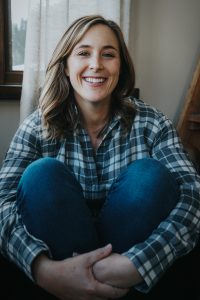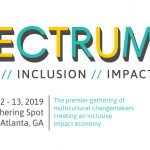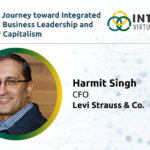Eighteen months ago, I closed a convertible note for my startup. The next day, I went into labor with my second baby.
This sounds crazy to most people, but as a serial entrepreneur it seemed like great timing — especially since my newest venture is working directly to allow parents like me to go back to work with peace of mind. Fifteen million children ages 0 to 5 in the United States are in paid childcare, yet more than 50 percent of those parents report that they are unhappy with their current solution. My company, MyVillage, is on a mission to transform America’s broken childcare system; this seemed to me like a fitting way to begin maternity leave.
All my life, I’ve tended to stand out in good ways and in bad. I was one of two blonde women in all my chemical engineering classes at UCLA for the three years I stuck to that major, and one of only a few female founders across the solar industry and even fewer focused on Africa. My kids attended their own parents’ wedding. And now, I am learning that I may be the only founder that decided to kickoff a fundraising process while six months pregnant.
Raising capital when you are the only female and the youngest person in the room isn’t always comfortable. When you add pregnancy to that, things can get downright awkward. I couldn’t travel the last six weeks of my pregnancy. I remember standing up on video calls with investors as the round came to a close so that I could jokingly zoom in on my swollen belly. This was at the beginning of #MeToo. Whether they said anything or not — I knew that they were wondering how a mother with two kids under two could handle starting and running a successful company through its seed round. If I am honest, on some days, so did I.
When my baby, Roxanne, came the day after the convertible round closed, she was a week late. I think it’s a testament to women’s bodies that I was subconsciously able to hold on and make sure the round closed before holing up with my newborn. My business partner, team, and family stepped up so that I could check out as needed that first month. Part of the culture we are intentionally building at MyVillage supports working parents and includes parental leave, including mine.
Raising funds to grow and scale MyVillage is not my first my rodeo (a saying that I embrace now that I live in Bozeman, Montana). Before co-founding MyVillage in 2017, I co-founded and was part of the executive team at Zola Electric in Tanzania. During my tenure, my team and I raised $150 million in venture capital (VC) and debt financing to launch and grow a company that brought clean, affordable solar energy to one million Africans.

Co-founder and CEO of MyVillage, Erica Mackey
As a white woman and the only female executive and co-founder, I stuck out at Zola too, even though I immersed myself in Tanzanian culture for a decade. Our best investors were the ones willing to travel to Africa and see firsthand the impact we were making in rural villages by democratizing energy. They understood what we were trying to do with the company, but they didn’t always understand me. My experience as a working mom living in a foreign country was foreign to them and to some of my team. I remember a colleague commenting to others that it was irresponsible of me to get pregnant with my first daughter, who is now three years old. It broke my heart to be judged for prioritizing a family. It also fueled me to build my next company with a different mentality — one that celebrates the marathon more than the sprint, one that embraces balance to allow us to show up fully in our mission.
The problem we aim to solve through MyVillage is one I’ve actually experienced: scrambling to figure out care for my babies and blaming myself that we didn’t get on the right waitlists before conceiving. Good entrepreneurs get really obsessed with their customers, and this time, the customer is me. My children literally attend our beta school right behind our Bozeman office building.
Most families in America struggle to find high-quality, affordable, home-based care, including some of MyVillage’s investors. Through this shared pain point, my co-founder, Elizabeth Szymanski, and I forged the relationships needed to close the largest seed raise in Montana’s history last April at $5.95 million dollars.
During a pitch meeting with an investor, you have a half-hour or an hour, if you’re lucky, to build a connection. We could tell right away when investors understood us, or when the childcare struggle and our fierce desire to fix it, felt foreign to them. For working parents — moms and dads — the first five minutes of our pitch would involve them describing their personal obstacles to find quality care.
When investors would come to visit me at MyVillage’s headquarters in Bozeman, I squeezed them in between car seats as we went to pick up my girls together so they could live my experience. It takes gumption to direct someone who holds power over your financial future to hop in a dirty car, but in making a human, parental connection with them, it underscored the reality of daily life for working parents.
Much has been written about how less than 10 percent of VC decision-makers are women, and how 74 percent of VC funds based in the United States have no female investors at all. Yet, my female co-founder and I were able to close a historic seed round of nearly $6 million. We ended up oversubscribing the round because so many of the investors who initially passed came back to us as our community-oriented approach began to set us apart from competitors in this space.
Given MyVillage’s early childhood education focus, more than 50 percent of our initial investor meetings involved pitching to a female investor. We had over 50 initial investor conversations. The common theme during MyVillage’s seed round was that the investors with young kids in need of childcare understood our problem right away. They didn’t much care how we framed the problem and wanted to skip straight to our story and solution.
MyVillage currently has nearly 80 home-based childcare programs throughout Colorado and Montana — most already open or slated to open soon. Our plan to have 1 million infants and toddlers in care within the next 10 years. To do this, we’ll need to raise more money and personalize our customers’ struggle for more people, including investors, as we grow.
Clearly, I have a type when it comes to the companies I like to start and the investors I attract. Both Zola and MyVillage tackle big and complex problems, and both present huge market opportunities, headquartered in off-the-beaten-path locations. Both have committed and talented teams working on the solutions. Given this, both companies targeted, and attracted, values-aligned investors such as Acumen America, Better Ventures, and Jasmine Social Investments at the early stage.
We live in an incredibly turbulent and exciting time as female entrepreneurs. Every day, I hear or read a story about a female-led company that is crushing expectations, or a female-focused fund launching. Whether the stats back up my perceived shift or not, it is hard not to feel optimistic that sunlight is starting to shine on more female-led companies. I wake up every morning knowing that MyVillage is creating an army of entrepreneurs who are turning the tables on what it means to be a woman-owned business.
But even among females, be they investors, entrepreneurs, or early childhood experts, sometimes I still find myself to be the outlier. Not everyone is comfortable with a business approach to fixing the nation’s childcare system, and the pace of change can be much faster than what institutional players in nonprofits or government may be used to.
MyVillage is first and foremost about community — sure, we are a tech company too, but our technology exists to enable our operations and to strengthen our community. A sign about building trust and community hangs on the wall in my office as a reminder of the values MyVillage stands for. In a growing sea of competitors that prioritize tech over people, I’m proud to be an outlier.
MyVillage’s shared values:
- Be the Rock: Trust is built on promises that we keep. We can only care for others if we care for ourselves.
- Lead with Courage: We know that if we don’t risk anything, we risk even more.
- Be Proud & Be Humble: We all have something to teach and we all have something to learn.
- Build Trust & Community: We do what is right, even when it isn’t easy. We expect our community to do the same.
- Embrace the Journey: We focus on the journey. Our joy is found in doing, not just finishing.
- Choose Optimism: Just like our kids, we live in a world of possibilities and believe that everyone has untapped potential.





